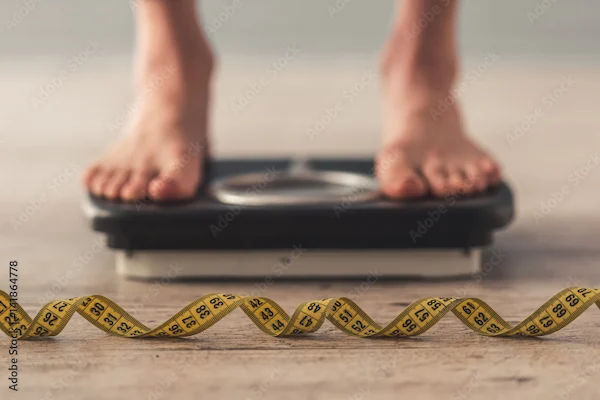How To Reduce Body Fat Percentage?
Learn how to reduce body fat percentage effectively with balanced nutrition, exercise, sleep, and lifestyle tips for a healthier, fitter you.

Written by
Last updated on 13th Jan, 2026
Reducing body fat percentage is a common health goal for many people. While losing weight is important, focusing on body fat percentage specifically helps improve overall health, boost energy levels, and reduce the risk of chronic diseases like diabetes, heart disease, and high blood pressure.
If you're looking to lower your body fat percentage in a healthy and sustainable way, here’s a simple, friendly guide to help you get started.
Understanding Body Fat Percentage
Body fat percentage is the proportion of fat in your body compared to your total weight. Unlike just tracking weight on a scale, body fat percentage gives a clearer picture of your health because it differentiates between fat and muscle.
Essential fat: Needed for normal body functions (about 3–5% for men, 10–13% for women)
Storage fat: Extra fat stored for energy
A healthy body fat percentage varies by age and gender:
Men: 10–20% (athletes may have 6–13%)
Women: 20–30% (athletes may have 14–20%)
Why Reducing Body Fat Percentage Matters?
Excess body fat, especially around the abdomen, increases the risk of:
Heart disease
Type 2 diabetes
High cholesterol
Joint problems
Sleep apnea
Losing fat (not just weight) helps improve metabolism, energy levels, and overall well-being.
Effective Ways to Reduce Body Fat Percentage
Here are some effective ways to reduce your body fat percentage and achieve a healthier, leaner physique:
1. Eat a Balanced, Protein-Rich Diet
Protein helps build muscle and keeps you full longer. Include eggs, lean meats, fish, beans, and dairy.
Healthy fats (avocados, nuts, olive oil) support metabolism.
Fiber-rich foods (vegetables, fruits, whole grains) aid digestion and reduce cravings.
Avoid sugary drinks, processed foods, and excess refined carbs (white bread, pastries).
2. Strength Training (Resistance Exercises)
Muscle burns more calories than fat, even at rest. Strength training helps:
Build lean muscle
Boost metabolism
Improve body shape
Try:
Weight lifting
Bodyweight exercises (push-ups, squats)
Resistance bands
3. Cardiovascular Exercise
Cardio burns calories and helps reduce fat. Aim for:
Moderate-intensity: Brisk walking, cycling, swimming (150 mins/week)
High-intensity interval training (HIIT): Short bursts of intense exercise (e.g., sprinting) followed by rest
4. Get Enough Sleep
Poor sleep disrupts hormones (ghrelin and leptin) that control hunger, leading to overeating. Aim for 7–9 hours per night.
5. Stay Hydrated
Water helps with digestion and reduces unnecessary snacking. Drink at least 8–10 glasses daily.
6. Manage Stress
Chronic stress increases cortisol, a hormone that promotes fat storage, especially around the belly. Try:
Meditation
Deep breathing
Yoga
Walking in nature
7. Avoid Crash Diets
Extreme calorie restriction slows metabolism and leads to muscle loss. Instead, focus on gradual, sustainable fat loss (0.5–1 kg per week).
8. Track Progress Smartly
Use a body fat scale or skinfold calipers (not just a regular scale).
Take progress photos and measurements (waist, hips).
Notice how clothes fit rather than obsessing over numbers.
Common Mistakes to Avoid
Here are some of the most common mistakes to watch out for on your journey:
Skipping meals (slows metabolism)
Overdoing cardio without strength training (can lead to muscle loss)
Relying only on supplements (no magic pill for fat loss)
Ignoring sleep and stress (both impact fat storage)
When to Seek Professional Help?
If you’re struggling despite consistent efforts, consider consulting a:
Nutritionist (for personalized meal plans)
Fitness trainer (for tailored workouts)
Doctor (to rule out hormonal imbalances like thyroid issues)
If you'd like a customized plan, you can book a consultation with a dietitian or fitness expert on Apollo 24|7. They can help you with the right diet, exercise, and lifestyle changes based on your body type and health condition.
Conclusion
Reducing body fat percentage is a gradual process that requires a mix of healthy eating, exercise, good sleep, and stress management. Instead of quick fixes, focus on long-term habits that improve overall health. Remember, every small step counts—whether it’s choosing a salad over fries, taking the stairs, or getting an extra hour of sleep. Stay patient, stay consistent, and celebrate progress, not perfection! Would you like help creating a personalized plan? Schedule a consultation today and take the first step towards a healthier you!
Consult Top General Physicians
Consult Top General Physicians

Dr. Rajib Ghose
General Physician/ Internal Medicine Specialist
25 Years • MBBS
East Midnapore
VIVEKANANDA SEBA SADAN, East Midnapore

Dr Aakash Andgi
General Physician/ Internal Medicine Specialist
9 Years • MBBS MD
Bengaluru
Apollo Clinic, JP nagar, Bengaluru

Dr. Rohit Basu
General Practitioner
8 Years • MBBS, DNB (General surgery)
East Midnapore
VIVEKANANDA SEBA SADAN, East Midnapore

Dr. Swagato Podder
General Practitioner
5 Years • MBBS
Kolkata
GRD POLYCLINIC, Kolkata

Dr. Arif Ahmed
General Physician/ Internal Medicine Specialist
9 Years • MBBS, MD (Genl. Med.)
Kolkata
MCR SUPER SPECIALITY POLY CLINIC & PATHOLOGY, Kolkata




